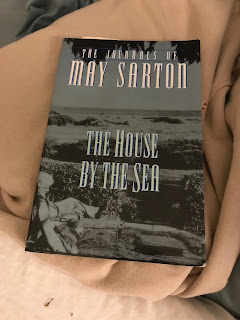 |
| photo by Amy Brandon |
Could it be our love would never have grown so strong down the years
had the mist not robbed us the way it did?
Perhaps it allowed old wounds to heal. ~Axl in The Buried Giant
I keep telling myself one of these days (soon, I hope, as I
am well out of girlhood), I am going to get old enough to be comfortable
telling my truth with no carefully chosen language. I am amazed at how hard it is for me to offer
anything that feels like criticism without feeling guilty and second-guessing
myself. My good-girl, hush-girl,
smile-girl, play-dumb-girl, Southern Baptist rearing worked a little too
well. I mean for god’s sake I had to
preface this blog post with a mini-psychological analysis just to be able to
say that my reaction to Kazuo Ishiguro’s The Buried Giant was, well…meh. How do I dare criticize a Nobel-prize winner?
I don’t mean to say I didn’t enjoy the book, or that I
believe the book has no merit. Not at
all. I have finally, at least, starting
abandoning books I do not enjoy at all.
This book I finished in a week, which is a normal time frame for
me. I read a lot of different books at
once, so I don’t usually finish a book in less than a week. Also I think people who pride themselves on speed-reading are compensating for
something. I don’t even care what.
I understand the symbolic lesson of The Buried Giant,
and I like it. If individual memory is a
small-time con man, collective memory is an international pyramid scheme. And the philosophical argument to be had over
what’s best: knowing the truth always
versus sometimes maybe fooling yourself or being fooled to assure your own
sanity, peace of mind, ability to be happy?
I get it. I really do. I suspect there is no constant, dual answer to
this question. The thematic concepts in
this novel are great and are well worth the time spent thinking about
them. The presentation didn’t work for
me though. The plot felt disjointed, the
dialogue contrived, and the characters just felt confused. I guess it’s hard to write characters who
can’t remember their own past without having them seem addled and confused, but
that construct doesn’t do a lot for character development. Has a character developed just because that
character has reclaimed its own memory?
Who are we without our memories?
Ah…but see there we get back into one of the philosophical themes. So maybe this is a brilliant book. Maybe I just need to be more enlightened to
see it. Maybe that will come with
age. Oh wait, I’m already old. So maybe not.





